Queensland Labor is adopting watered-down Greens policies at record speed, while resisting deeper change
It's happening so fast now that I can barely keep up. As Queensland's election looms closer, Steven Miles's Labor government keeps announcing policies that look, at first glance, like things the Queensland Greens have been calling for, but which generally fall well short of the actual Greens proposals.
This is not an entirely new phenomenon. There's a long history of Labor eventually shifting position and getting behind changes that the Greens have put a lot of energy into advocating for (e.g. abortion rights, same-sex marriage, voluntary assisted dying).
But this particular Queensland state election feels qualitatively different in terms of how often it's happening, and how closely Labor's rhetoric around these announcements matches Greens' messaging.
The first big shift came when Labor abandoned its support for the Gabba to be used as the main athletics stadium for the 2032 Olympics – something the Greens had been very critical of since the stadium demolition and rebuild was first announced. But it wasn't enough to stop Labor losing tens of thousands of votes to the Greens in the March 2024 city council elections.
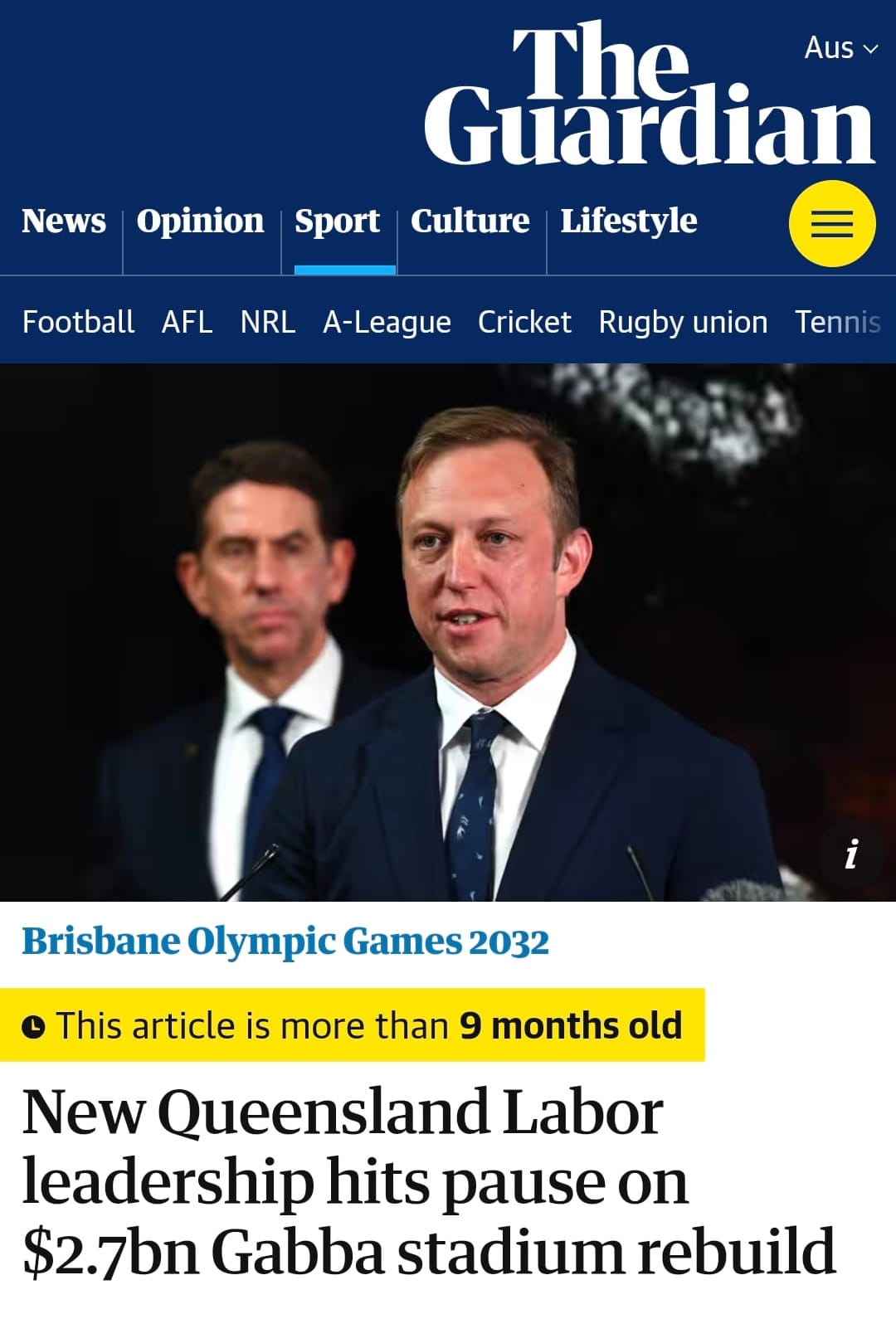
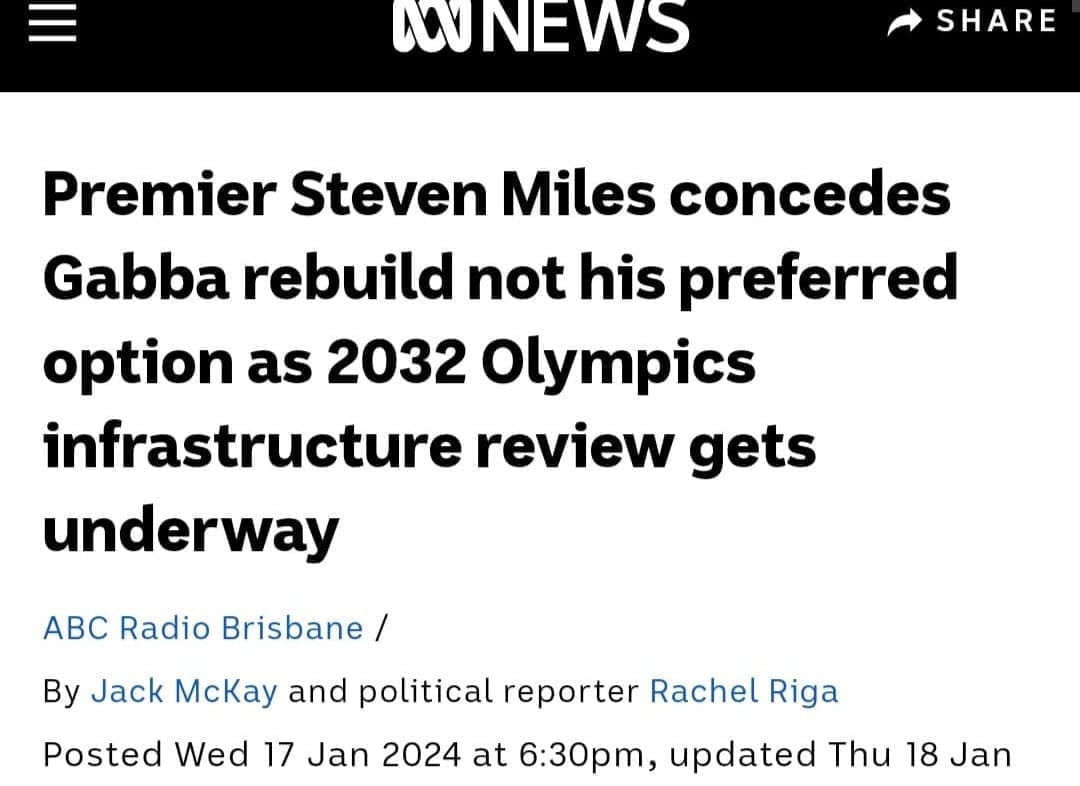
Since then we've seen Labor respond to Greens calls for free public transport by reducing fares to 50 cents. This is a massive win that everyone involved in campaigning for affordable public transport should feel very proud of.
Of course, Labor has declined to fund all the other much-needed improvements to public transport frequency, coverage and operating hours that the Greens have been calling for, and is still issuing heavy fare evasion fines and dragging people through the courts if they don't tap on with a GoCard.
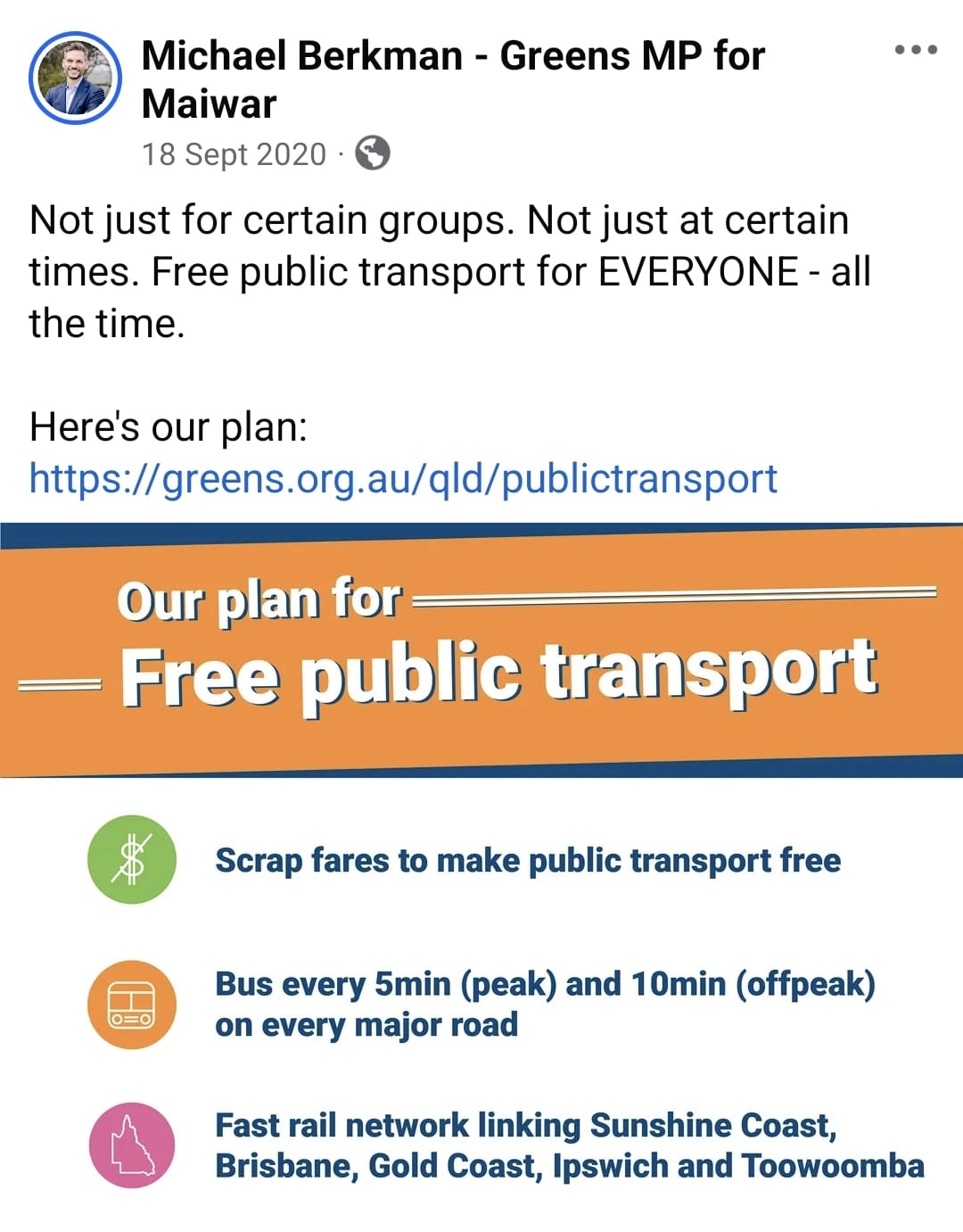
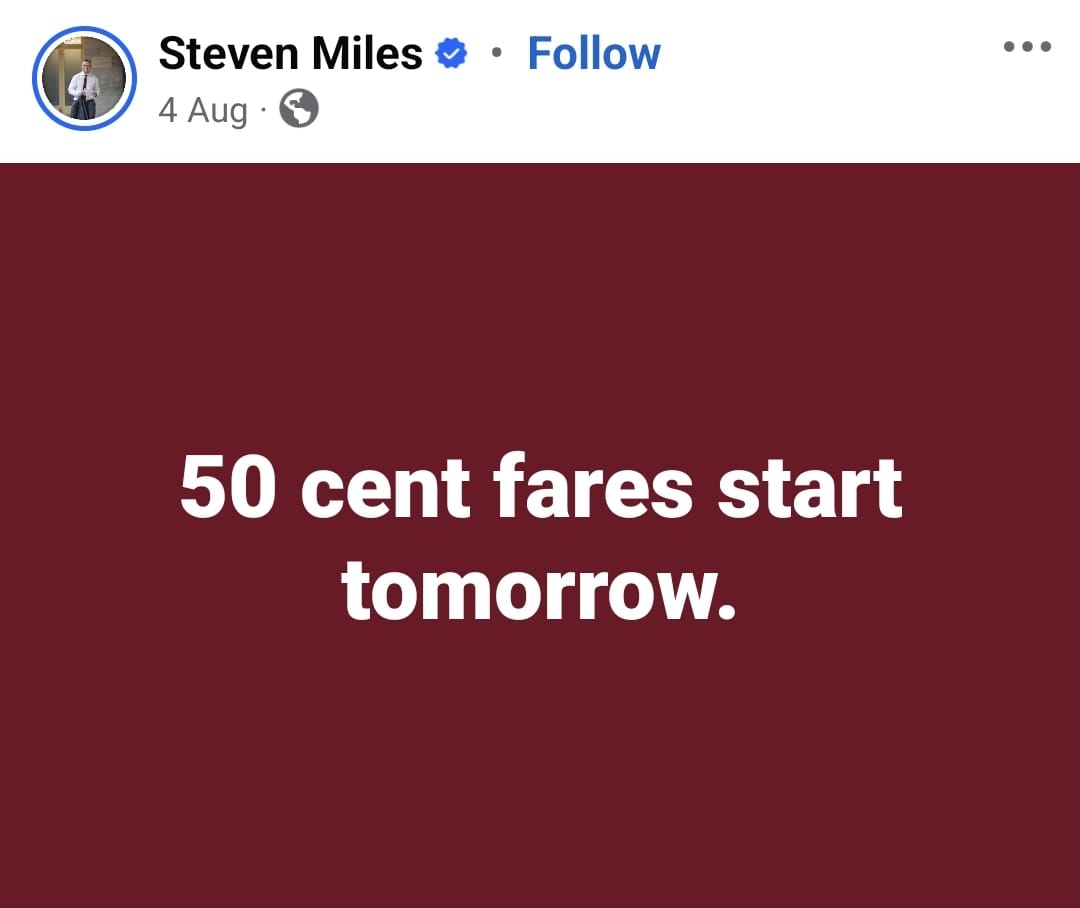
Still, it's a positive step. And cheaper public transport definitely isn't the only Greens policy Labor has partially adopted this campaign.
Earlier this year, the Greens announced an election campaign initiative to create 200 free GP clinics that included onsite allied health professionals like physiotherapists and psychologists. A few days ago, Labor announced a plan to create 50 new GP clinics (but without the allied health specialists).
The Greens have proposed to increase mining royalties, raising the base royalty rate to 35% to fund other public services and projects (I've offered some critical commentary on this approach in the past which I think is still relevant). Labor hasn't come anywhere close to matching this, but they have made some modest moves to preserve slightly higher royalties on coal extraction, while borrowing a lot from Greens rhetoric.

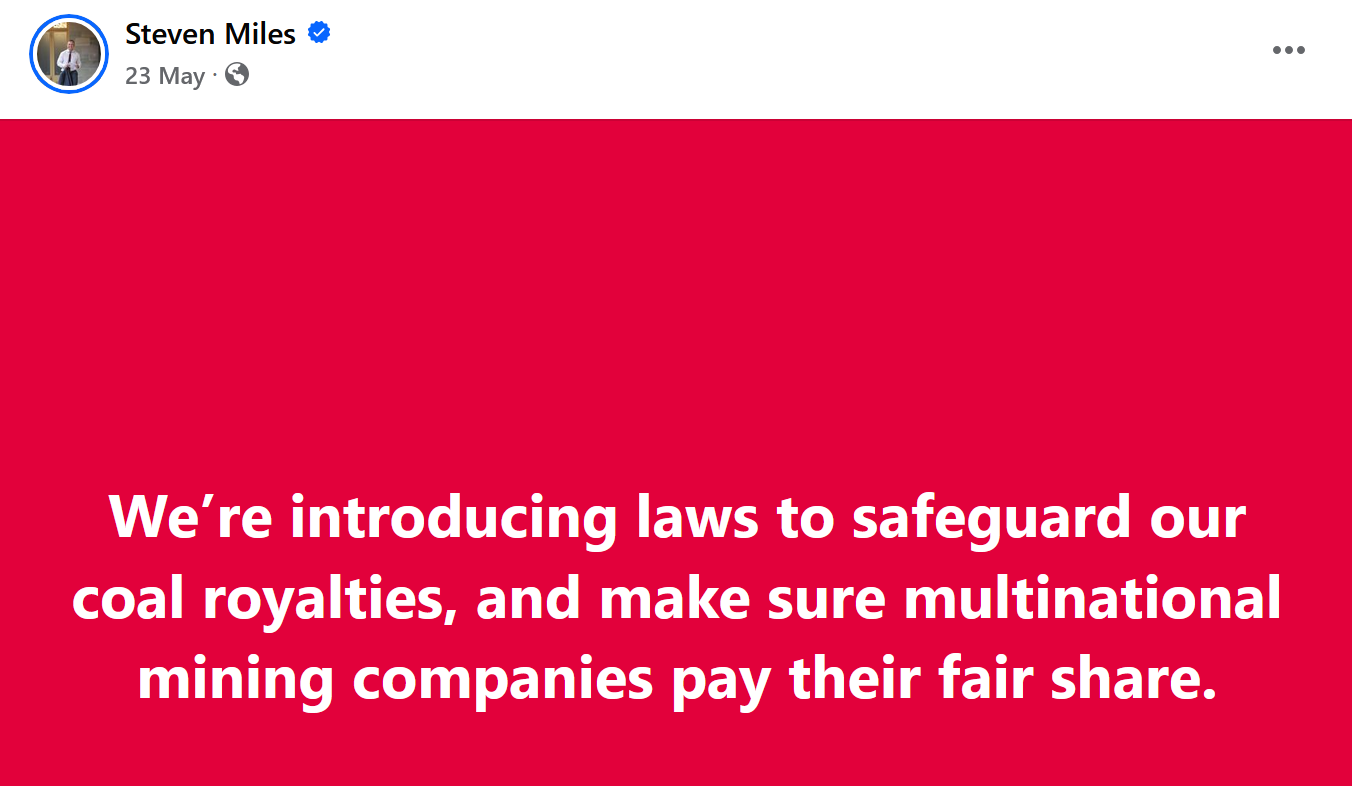
Leading up to the 2020 election, the Greens started calling for free club sport for kids, and the Labor government responded by introducing a limited number of vouchers to make sport cheaper. Then in July this year, the Greens reannounced their proposal to publicly fund a season of club sport for each kid each year, and just over a week later, Labor announced they'd be releasing another 100 000 vouchers to partially subsidise club sport to the tune of $200 per child.
For several years now, the Queensland Greens have been proposing to essentially nationalise the electricity retail sector and achieve 75% public ownership of large-scale electricity assets by 2030 (with the eventual goal of 100% public ownership), abolishing private energy retailers and providing electricity on a non-profit basis. Labor's response just a few weeks ago was to say they'd create another publicly owned energy retailer, but wouldn't abolish the private retailers or make any of the other changes the Greens have suggested.
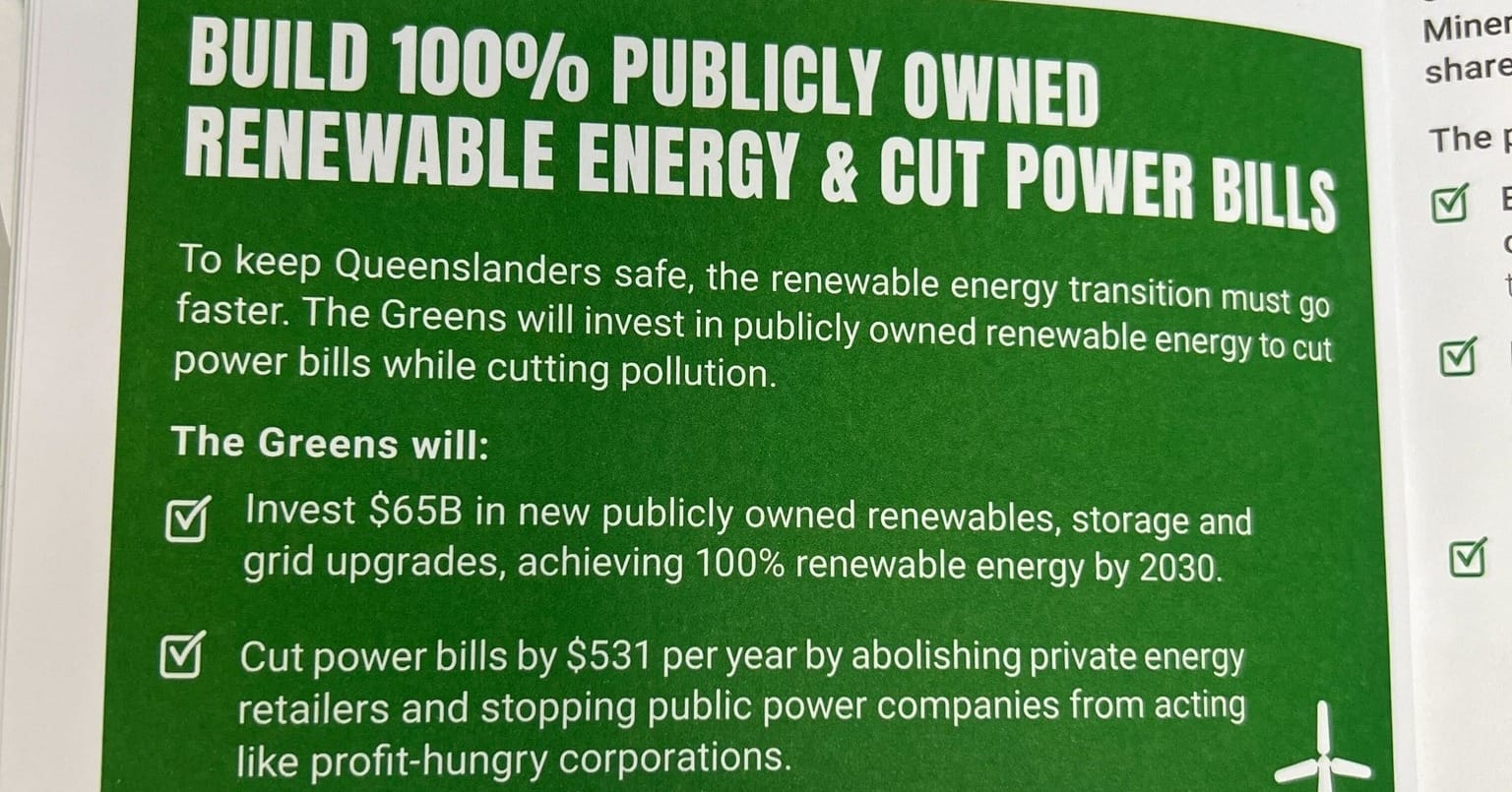
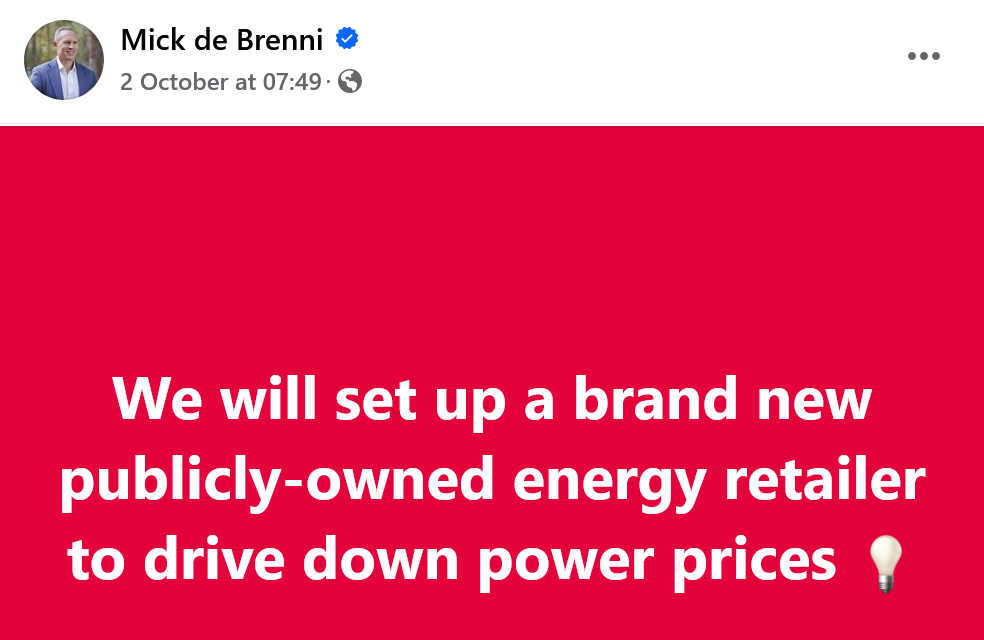
And just in the last week, Labor partially adopted another Greens position, saying it would fund free school lunches for kids at all public primary schools. This is a big step forward (and a big change from a few years ago, when Labor actively opposed Greens moves to implement this). But free lunches for primary school kids is still a long way short of the Greens proposal for free lunches and breakfasts for both primary school and high school students.
Anyone not paying much attention could be forgiven for thinking Labor is directly copying Greens policies. Steven Miles has even started using favoured Greens phrases like 'people before profit.' But in each of the policy examples listed above, the Labor version is objectively much less ambitious.
Small stuff is easy
50 cent public transport fares, free primary school lunches, a public energy retailer, more GP clinics, sports vouchers for kids – shifts like these represent significant, tangible improvements to people's lives (although so far the LNP has only agreed to match 50 cent public transport fares; the free lunches will depend on the election result). They demonstrate how much more influence the Greens now have over Queensland politics than the party did a few years ago.
But let's be honest – sports vouchers and more GP clinics are relatively small reforms in the grand scheme of things. They're positive improvements, but we need far bigger changes to address the many overlapping crises we're grappling with. Saving a family $100 a week on school meals doesn't offset a $200 rent increase; it certainly doesn't prevent the dramatic, catastrophic impacts of runaway global warming that future generations will curse us for not preventing. And while Labor has copied certain Greens slogans and made lots of noise about partially adopting some of the most modest Greens reforms, it's still strongly resisting the bigger transformations the movement is advocating for.
Queensland Labor doesn't want to freeze rent increases or dramatically increase investment in public housing construction. It is still approving and subsidising new coal and gas projects. It continues to facilitate rapid, widespread clearing of native vegetation. And the Queensland Labor government is locking up children at significantly higher rates than any other Australian state.
The risk is that Labor can position itself as making some progressive changes while essentially maintaining the overall status quo. A cynic would argue that free lunches and cheaper bus fares are simply pressure valves – the political establishment handing out crumbs, offering struggling families the bare minimum of relief so they don't rise up and rebel. I don't want to downplay their importance too much – 50 cent fares probably will, in a way, transform some people's lives. But they won't transform society.
What's the lesson here?
The Greens are in an interesting spot right now. Our election platforms generally contain a wide spectrum of demands, from very minor reforms that the mainstream system can easily accommodate, to bolder changes that more directly threaten corporate monopolies and the foundations of the capitalist economic system. But if we focus too heavily on the more modest reforms when convincing voters to switch to the Greens, and don't spend enough time explaining why the deeper changes are also necessary, we could eventually find ourselves outflanked or co-opted... The major parties can adopt as their own any Greens policy initiatives that don't strongly challenge the status quo, while also copying (and thus neutralising) Greens messaging, to the point where the case for switching to the Greens might not be strong and obvious enough to some voters.
Perhaps the important message for voters to hear – both in this state election and in future campaign cycles – is that Labor might be half-adopting some of the simplest and smallest reforms that the Greens are proposing in order to avoid losing votes, but they're not willing to make the bigger changes our society urgently needs.
It's hard to predict how this will all play out in the long-run, but for now I think Greens supporters can pat themselves on the back, because regardless of how many seats we win on 26 October, we've already won more policy concessions than ever before.
The deeper question I'm mulling over is whether the conventional Greens approach of contesting elections via specific policy announcements that illustrate a broader vision for society could ultimately be counter-productive. Extracting policy concessions from the major parties is great – it's part of why the Greens run candidates even though we're a long way off winning government. But a preoccupation with individual policy wins and losses – and what policies we should or shouldn't lead with at election time – can also distract us from pushing for more fundamental, revolutionary transformation.
The Greens vision for society should not be misconstrued as a shopping list of siloed changes that can be compared or interchanged with the other parties' lists. The policies do have standalone value, but they're also meant to be discussion prompts that exemplify deeper cultural shifts and a fundamentally different way of thinking about the world.
If the political establishment can cherrypick and incorporate discrete elements of the Greens policy platform, while sidelining more urgent conversations about systemic change, the party risks being drawn into a web of endless struggles for incremental reform. If we're not careful, we'll spend too much time debating what songs the musicians on the Titanic should be playing while their ship sinks beneath the waves.

Thanks heaps for reading. Please take a moment to share this article on social media or forward it to friends via email. If you'd like to leave a comment below, signing up is free. But if you appreciate writing like this, please consider supporting it via a paid subscription.
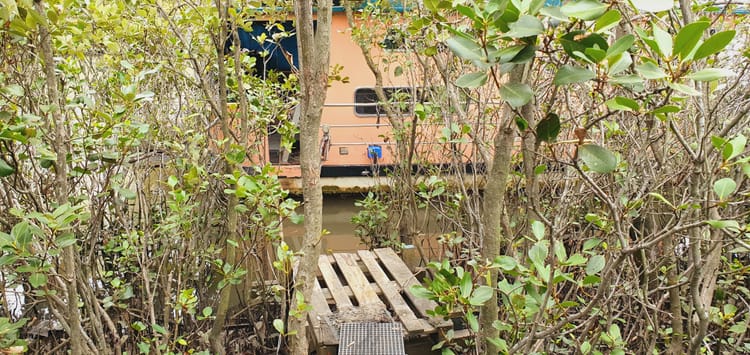

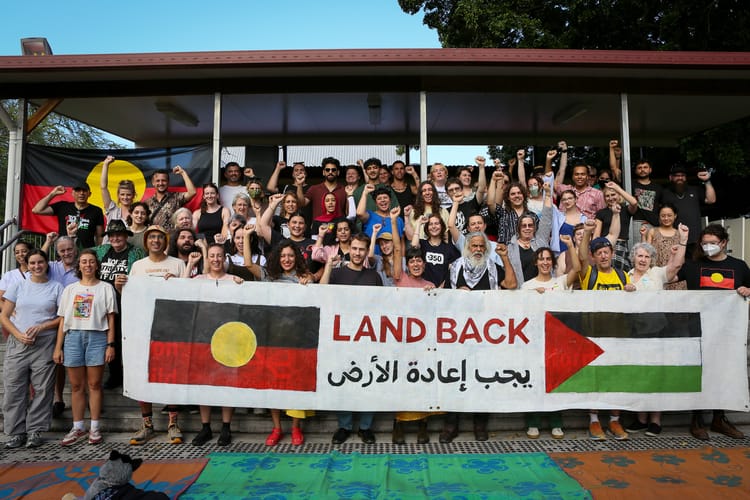
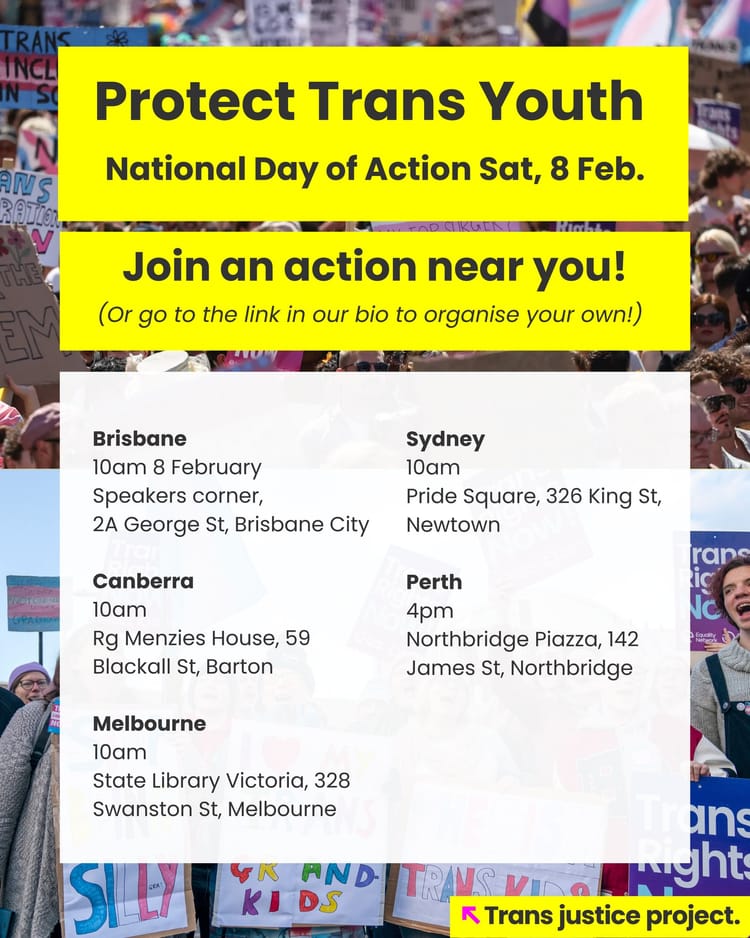

Member discussion